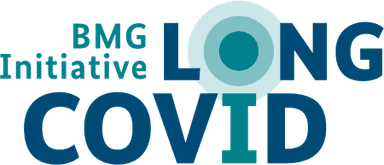Note: The following text is a guest article. They reflect the personal views of the author. The article is not an expression of opinion by the Federal Ministry of Health.
Guest article, by Prof. Scheibenbogen
The consequences of the pandemic: Post COVID and ME/CFS
There has been a long history of prolonged symptoms following viral infections. In the wake of the Corona pandemic and Long COVID, we are facing a new facet of the problem. Prof. Scheibenbogen outlines the prospects for the future in this guest article.
Published on: 07/12/2023
© Copyright: Simone Baar, Charité
What lies ahead for Long COVID?
Many infections involve post-infectious sequelae. This means long-lasting or chronic symptoms that occur after the acute phase of the infection is over and the body has often already successfully combated the virus. Such symptoms that occur after viral infections are also referred to as post-viral syndromes. The latter can also occur with various other viral infections, including influenza, Epstein-Barr virus (EBV), enteroviruses or dengue virus. They are also known to be clustered following previous viral epidemics. The exact causes of postviral syndromes are not yet fully established.
The symptoms of post-viral syndromes can be many and vary from person to person. The most common symptoms include persistent, severe exhaustion (=fatigue), muscle pain, joint pain, headaches, memory and concentration problems, circulatory or sleep disorders. The COVID 19 pandemic has exposed us to a new set of post-infectious diseases in the form of Long COVID. Many people affected by Long COVID are still suffering from symptoms with a high risk of becoming chronic 12 months after infection, and some of them are critically ill. As of June 2023, the World Health Organisation (WHO) estimates that 1 in 30 Europeans is infected with it. For many of these patients, no curative treatment is available yet. The myalgic encephalomyelitis or chronic fatigue syndrome (ME/CFS) is one of the most disabling post-infectious sequelae, affecting an estimated 300,000 people in Germany even before the pandemic (Figures by KBV).
Research on Long COVID
Due to the occurrence of Long COVID in the pandemic, there is cause for hope that the mechanisms of post-infectious diseases can be rapidly elucidated with the aid of international research, and that effective therapies can thus be developed. Studies already indicate that sustained activation of the immune system, circulatory disturbances and viral persistence play a role. All over the world, clinical therapy studies for post COVID and ME/CFS have started. In Germany, too, a National Clinical Study Group has been established with the support of the BMBF to conduct research and therapy studies that address PCS and ME/CFS "hand in hand".
Care for Long COVID
Up to now, many people affected have not been well looked after. Patients with Long COVID often have a variety of symptoms and impairments, and many doctors are not well acquainted with post-infectious diseases. Long COVID patients first need adequate and, if possible, timely diagnosis and symptom-oriented treatment. The best way to achieve this is through structured care within a network of general practitioners and specialists, physiotherapists, rehabilitation clinics and special outpatient clinics. There are already a number of initiatives for such networks throughout Germany. What is urgently needed here are strategies for structuring and financing these care services. The Federal Joint Committee (G-BA), i.e. the body in Germany that is tasked with drawing up guidelines for medical care in the health sector, has the mandate here to adopt new regulations for structured and better care for those affected with Long COVID and similar post-infectious diseases.
In order to diagnose and treat critically ill patients and to conduct therapy research, regional competence centres are imperative. The BMG has applied to the Federal Parliament for the funding of such centres. These centres must also include special outpatient clinics for the common post-infectious syndromes (ME/CFS, POTS, neurocognitive post COVID), which continue to be the most under-served conditions so far.
Published 12.07.2023
Vita
Prof. Dr. Carmen Scheibenbogen is an immunologist and Long COVID and ME/CFS researcher at the Institute of Medical Immunology of the Charité in Berlin. She leads several clinical trials and research projects on Long COVID and ME/CFS. She is also head of the Charité Fatigue Centre and chair of the Medical Advisory Board of the German Society for ME/CFS.
